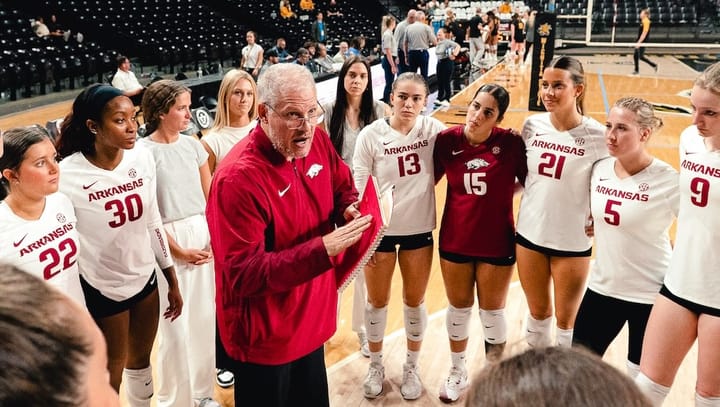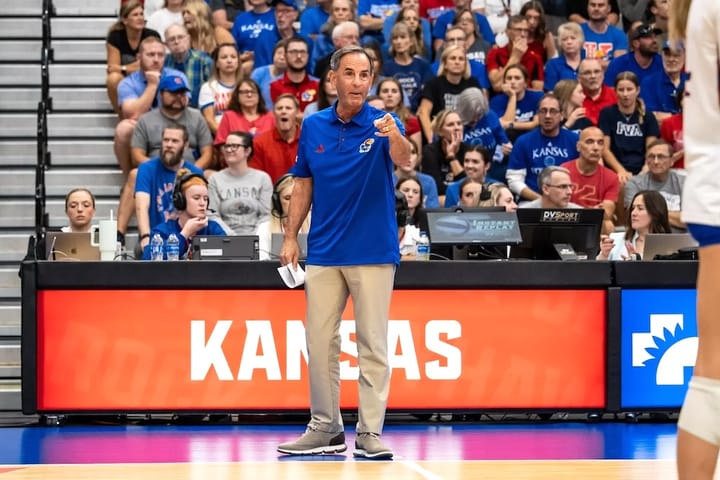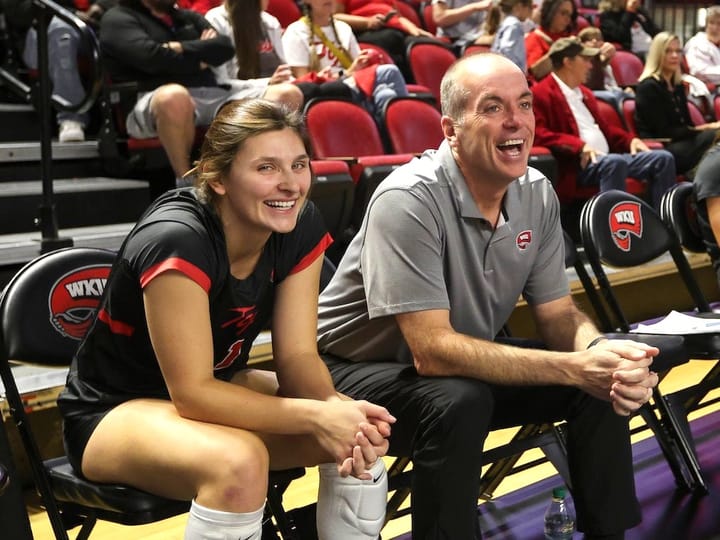95. Alfee Reft: Coaching is about shaping people.
Alfee Reft is the head coach of the University of California, Los Angeles women's volleyball team and an Olympic silver medal-winning U.S. National Team assistant.

Alfred “Alfee” Reft had a standout playing career as a libero at the University of Hawai'i, where he was named an AVCA First-Team All-American and the 2005 Asics/Volleyball Magazine Defensive Player of the Year. He still holds the school record for most digs in a season.
After college, Reft played professionally in Europe for seven years and was a member of the U.S. Men’s National Team from 2006 to 2010 and again from 2012 to 2015.
He started coaching in 2010 as an assistant at the University of Minnesota. He later joined the University of Illinois and helped them reach the Final Four in 2018. From 2020 to 2022, Alfee was associate head coach at the University of San Diego, where he helped lead the team to its first-ever NCAA Final Four appearance.
In December 2022, he became the head coach of UCLA Women’s Volleyball. Coach Reft was also an assistant coach to the U.S. Women’s National Team, from 2022 til winning the silver at the 2024 Paris Olympics.
In this Masterclass Alfee shares what he picked up over all those years, and how it molded him into the coach he is today.
Key takeaways from this article include:
- The importance of keeping playfulness and curiosity alive in high-performance coaching.
- How mindfulness and mental performance can shift a team’s entire competitive edge.
- Why four simple cultural pillars matter more than a list of rigid rules.
- What it means to lead young people beyond the court, and why that’s the real win.
- Coaching isn’t just about winning, it’s about shaping people.
- Being real builds trust, even when you don’t have answers.
Enjoy!
Enter Alfee...
Alfee, why did you decide to commit to being a professional volleyball coach? What pushed you towards that decision?
For me, the transition wasn’t a huge leap. I played professionally and retired from the national team in 2015. But even throughout my playing career, I was always coaching. That was just part of who I was.
From a young age, I knew I loved teaching, building, and creating with others—that was always in me.
So when I stopped playing, it didn’t feel like a major shift. There was a bit of a gap between finishing my playing career and stepping back into college coaching. But even before that, in 2009–2010, I had already dipped my toes into the college coaching world at the University of Minnesota.
That gave me a solid intro to the collegiate coaching game. After that stint, I returned to playing for the national team.
Then, once I fully retired, there was about a three-year stretch before I made the move back to college coaching. During that time, I stayed active, I was training and coaching young athletes, mostly juniors, out here in California.
Eventually, I felt the pull to return to a more competitive environment, something team-oriented, something high-level, where everyone was pushing to build something great. That’s always been the direction I was headed.
So when my friend Chris Tamas, whom I had coached with at Minnesota, called and said, “Hey, I’ve got this opportunity at Illinois. Are you interested?” it was an immediate yes.
It just made total sense.
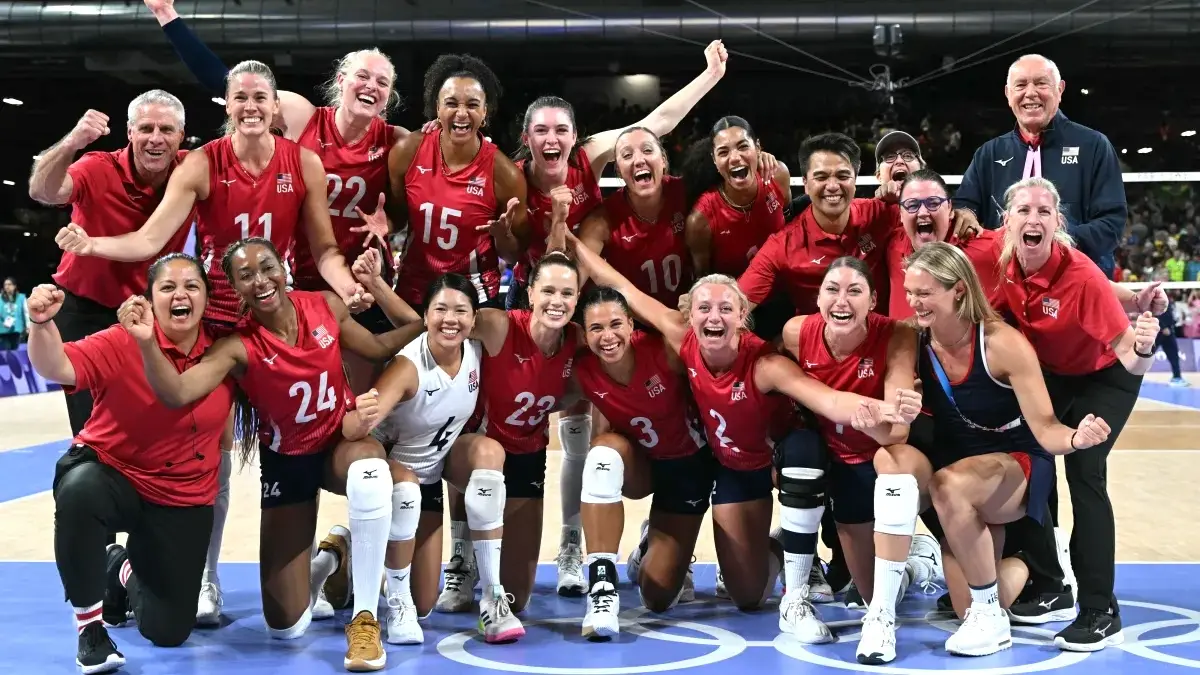
That’s how I got back into the college game.
Even while I was playing overseas, I would still make time to work with junior clubs, help out in the gym, just because I loved it. I’ve always loved the sport.
Coaching, exploring the game with other athletes, helping them grow, it’s been in my heart from the start. So I feel like coaching has always been at the core of who I am.
What advice would you give yourself as a starting coach? An advice that is so clear and logic for you now, but that you had to develop over the years.
That’s a good question, I saw it on the list and spent some time really thinking about it. For me, it’s about continuing to play, to stay connected to the sport, to the profession, to the relationships.
And when I say “play,” I mean keeping that sense of fun, exploration, and curiosity alive. I think a lot of coaches talk about this, and for good reason, it matters.
When I was younger, I had these big dreams and a clear vision of what I wanted my career to look like. But sometimes that mindset can feel a little rigid or overwhelming, like you have to stay on this perfect path and check all the right boxes.
Over time, I’ve realized that the moments where I’ve felt most effective and most fulfilled, in coaching and in the sport, have come when I approached things with a sense of playfulness.
So, I try to carry that with me: to keep finding joy, love, and fun in what I do—even during the hardest or most stressful times. This profession definitely has its pressures, like any career. But I always come back to this idea that we can choose to be playful in how we navigate the process.
And I believe that’s what brings out the best in us and in the people we work with.
Mindfulness and mental performance training are everywhere now—apps, routines, daily habits are no longer a trend, it’s part of the culture. But you were already deep into this work long before it became mainstream. What drew you to mindfulness so early, and how did that journey begin for you?
Jennifer Petrie actually mentioned you to me a couple of years ago specifically in the context of mindfulness and the work you did together at San Diego. Can you walk us through what that looked like? What specific practices or systems did you implement with the team, and how did they evolve?
As a player, I was fortunate. Back in my early college days at Hawaii, this was way back in 2004, I got introduced to sports psychology. It wasn’t common at the time, not like it is now. Our coach, Mike Wilton, asked if anyone was interested in meeting with a sports psychologist, and I said yes.
I didn’t even really know what it was about, but I was curious and wanted to keep learning.
That experience was impactful for me. I was already feeling some of the pressure that comes with performance, and I didn’t have a ton of tools to deal with it.
This psychologist worked with me on visualization, setting intentions, and developing awareness around what I was experiencing. It laid the groundwork for how I’d think about the mental side of performance going forward.
Later, when I was on the national team, we had another incredible sports psych working with us, different style, but equally powerful. Hugh McCutcheon was one of my coaches back then, and he believed in that kind of work. So, I had these valuable touchpoints throughout my playing career that helped shape the way I approached both the game and myself.
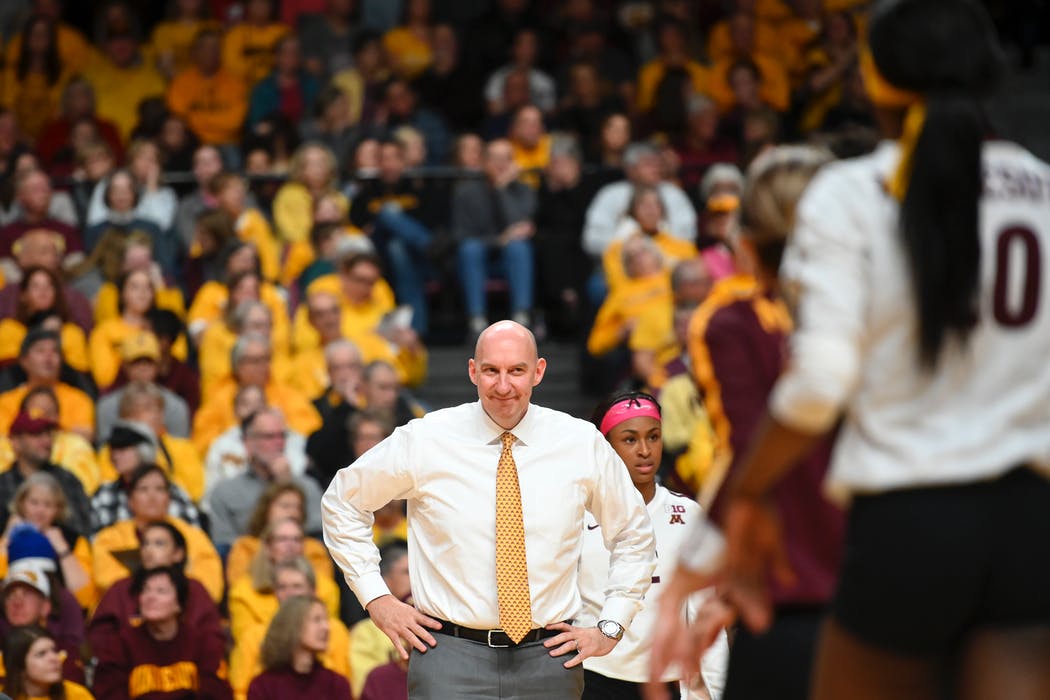
Fast forward to when I finished playing, before I got back into collegiate coaching, I spent time in a training facility here in California.
We worked with young athletes, and I brought in my close friend Nicole Davis, who’s not only one of my best friends but also a top expert in sports performance and psychology. She played libero for the U.S. women’s team for a long time and worked with Dr. Mike Gervais, who’s a big name in the space.
Nicole helped me understand how trainable the mind is. We train the body, we train skills, but we often neglect the mind.
Yet confidence, calm, poise, and awareness, these are all things you can train. And she brought in a clear curriculum to do just that. So with our athletes, we weren’t just doing volleyball drills and lifting weights, we were training the mental side just as intentionally.
That experience reinforced how important it is. When I got to Illinois, we brought that same approach with us. We worked on breathwork, creating personal mission statements for the athletes, helping them understand who they are and how they want to show up in big moments.

